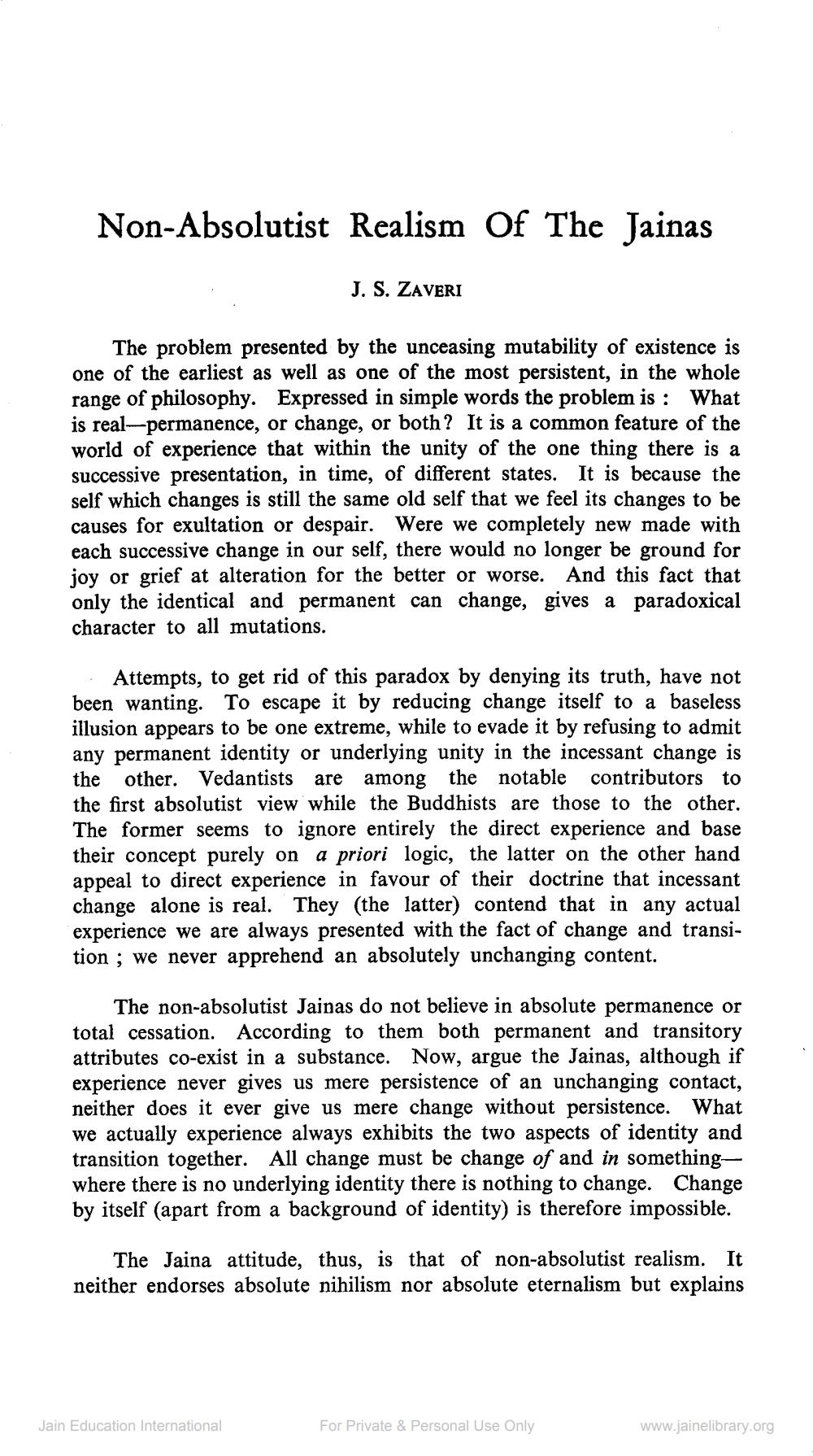________________
Non-Absolutist Realism Of The Jainas
J. S. ZAVERI
The problem presented by the unceasing mutability of existence is one of the earliest as well as one of the most persistent, in the whole range of philosophy. Expressed in simple words the problem is : What is real-permanence, or change, or both? It is a common feature of the world of experience that within the unity of the one thing there is a successive presentation, in time, of different states. It is because the self which changes is still the same old self that we feel its changes to be causes for exultation or despair. Were we completely new made with each successive change in our self, there would no longer be ground for joy or grief at alteration for the better or worse. And this fact that only the identical and permanent can change, gives a paradoxical character to all mutations.
• Attempts, to get rid of this paradox by denying its truth, have not been wanting. To escape it by reducing change itself to a baseless illusion appears to be one extreme, while to evade it by refusing to admit any permanent identity or underlying unity in the incessant change is the other. Vedantists are among the notable contributors to the first absolutist view while the Buddhists are those to the other. The former seems to ignore entirely the direct experience and base their concept purely on a priori logic, the latter on the other hand appeal to direct experience in favour of their doctrine that incessant change alone is real. They (the latter) contend that in any actual experience we are always presented with the fact of change and transition ; we never apprehend an absolutely unchanging content.
The non-absolutist Jainas do not believe in absolute permanence or total cessation. According to them both permanent and transitory attributes co-exist in a substance. Now, argue the Jainas, although if experience never gives us mere persistence of an unchanging contact, neither does it ever give us mere change without persistence. What we actually experience always exhibits the two aspects of identity and transition together. All change must be change of and in somethingwhere there is no underlying identity there is nothing to change. Change by itself (apart from a background of identity) is therefore impossible.
The Jaina attitude, thus, is that of non-absolutist realism. It neither endorses absolute nihilism nor absolute eternalism but explains
Jain Education International
For Private & Personal Use Only
www.jainelibrary.org




